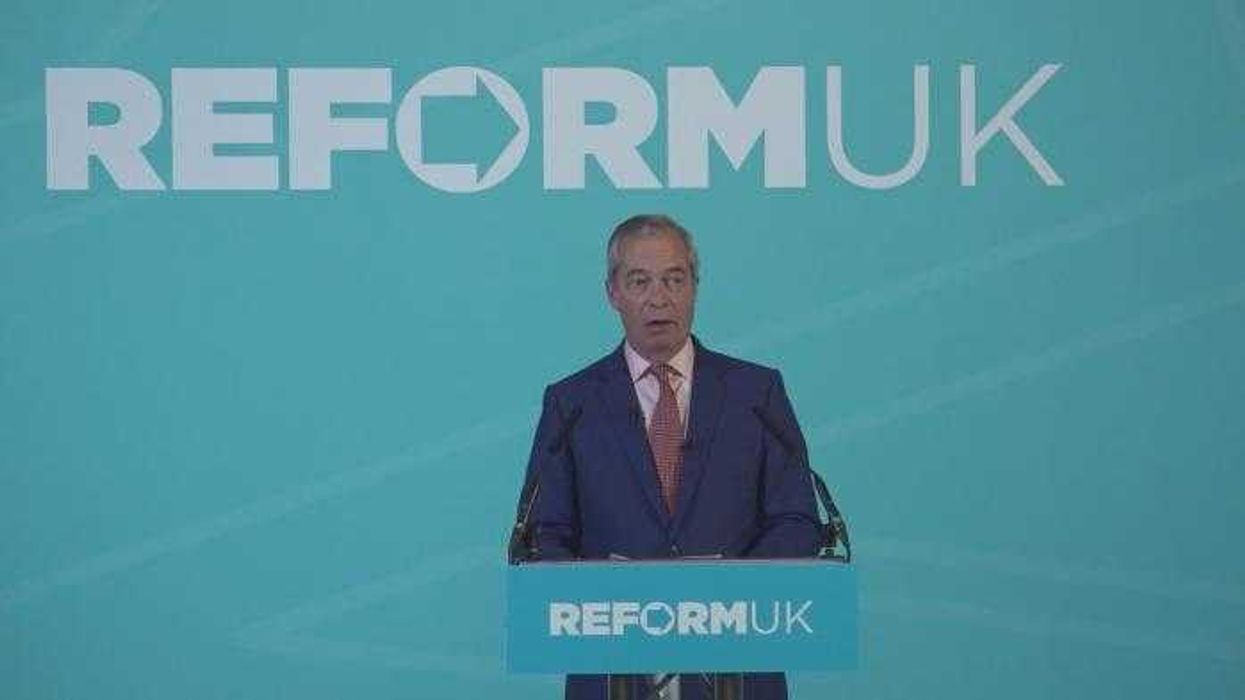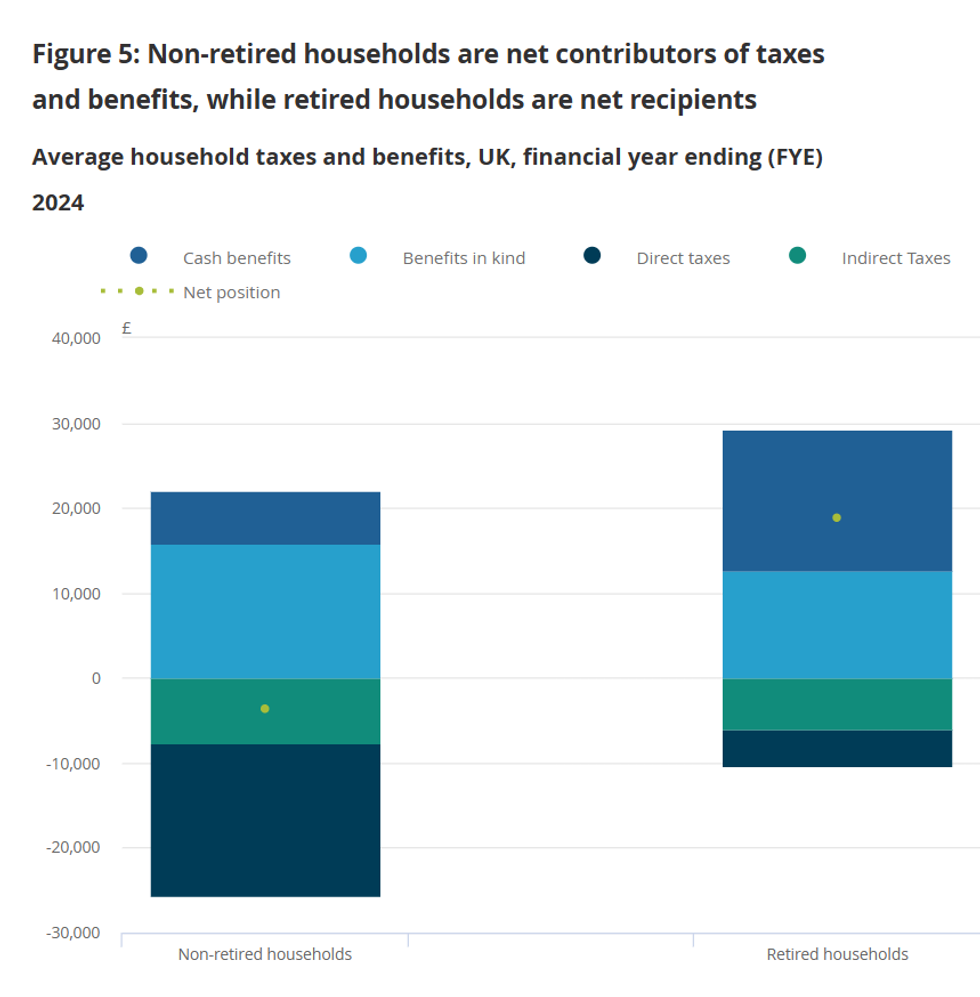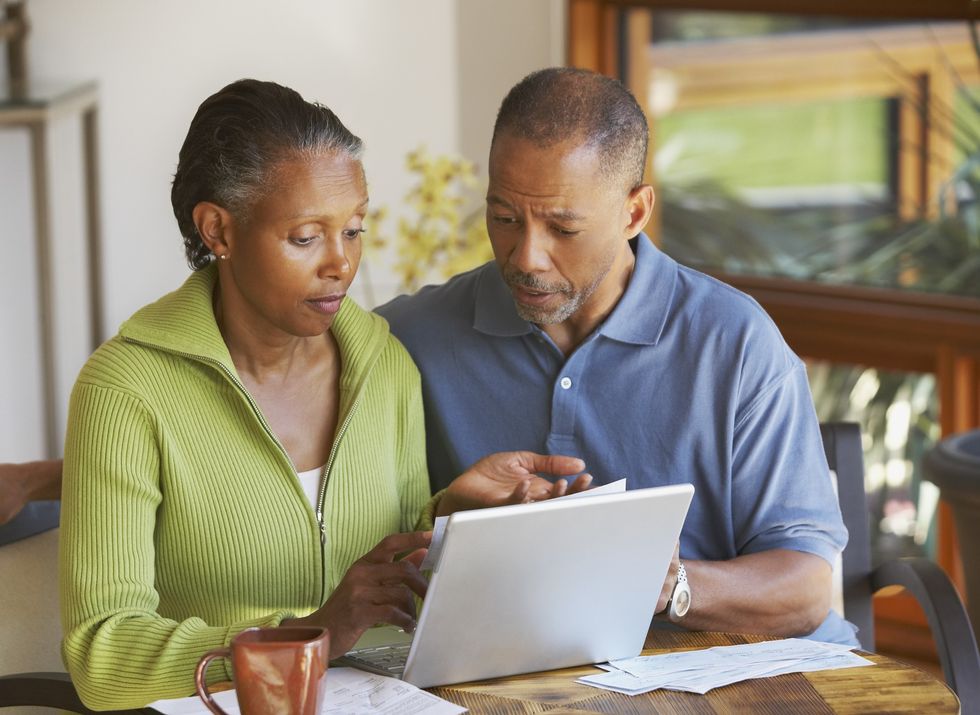More than half of UK population live in households receiving more in benefits than they pay in tax

Nigel Farage says Reform UK's immigration and welfare proposals will save billions |
GBNEWS

The total is now at its highest point on record outside of the Covid-19 pandemic
Don't Miss
Most Read
More than half of the UK population is now reliant on the state, marking a dramatic shift in how households fund their lives.
A record 35.8 million people are receiving more in benefits and services than they pay in tax, new figures have shown.
The Office for National Statistics (ONS) data covers the year to March 2024 and reveals that 53.3 per cent of the population live in households classed as "net recipients".
That means the value of what they get back from the state, such as welfare payments, education and NHS services, outweighs the amount they contribute in tax.
This is the highest level outside of the pandemic, when the figure briefly rose to 36.5 million people. It also marks a sharp increase on the previous year, when 52.6 per cent of people were dependent on the state.
TRENDING
Stories
Videos
Your Say
The trend has been building for decades. In the 1980s, around 40 per cent of the population were net recipients.
By the time of the financial crisis in 2009, this had risen to 50 per cent. It has rarely fallen below that level since, peaking again at 55 per cent during Covid and remaining significantly higher than pre-pandemic levels.
Critics say the figures highlight an unsustainable reliance on state support at a time when Britain’s tax burden is already the highest it has been since the 1940s.
Elliot Keck, head of campaigns at the TaxPayers’ Alliance, said: "For years the state has been overwhelmingly dependent on high earners to fund the services we all rely on.

For non-retired households, the proportion of net recipients has stayed relatively stable over the last three years
|ONS
"This has created a situation where around half of the public put in less than they get out. Yet despite this precarious predicament, Rachel Reeves has devoted her time and efforts as chancellor into targeting successful taxpayers, forcing many to flee and putting unsustainable pressure on the public finances.
"Labour now needs to urgently back off and look at significant tax cuts to encourage the entrepreneurs, investors and business people back to our shores."
The findings pile pressure on Labour’s new Work and Pensions Secretary Pat McFadden, who faces the challenge of tackling rising welfare costs and Britain’s so-called "sicknote epidemic".

Earlier this year, government attempts to reform the welfare system were blocked by Labour backbench MPs
| GETTYEarlier this year, government attempts to reform the welfare system were blocked by Labour backbench MPs.
The British Chambers of Commerce (BCC) has warned that long-term sickness is "hobbling" the economy, with the UK labelled "the sick man of the G7".
Around seven per cent of the workforce is currently out of work due to long-term health conditions, the highest level among advanced economies and double the rate in Japan, where just 3.5 per cent are off sick.
Meanwhile, the number of people claiming disability benefits is also climbing. Research by the Centre for Social Justice think-tank shows that almost 650,000 people were claiming Personal Independence Payments (PIPs) for anxiety and mood disorders in July.
 Chancellor Rachel Reeves is confronting mounting fiscal pressures | POOL
Chancellor Rachel Reeves is confronting mounting fiscal pressures | POOL Since Labour came to power, 250 people a day have been added to the total.
The ONS stressed that its figures include both direct welfare handouts and public services, such as healthcare and education, when comparing the amount households pay in tax against what they receive back.
With the Chancellor already facing a £20-30billion black hole in the public finances ahead of November’s Budget, the growing number of households dependent on state support raises tough questions about how sustainable Britain’s current system really is.
More From GB News










